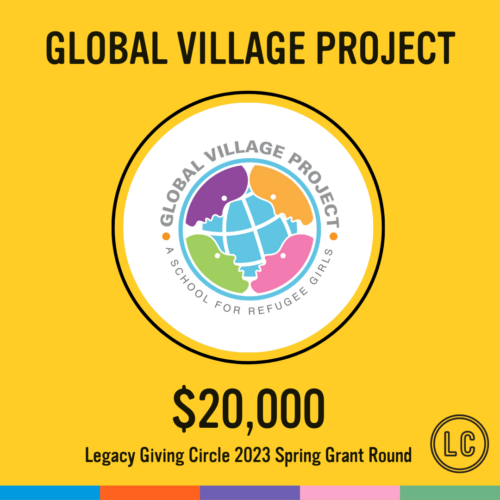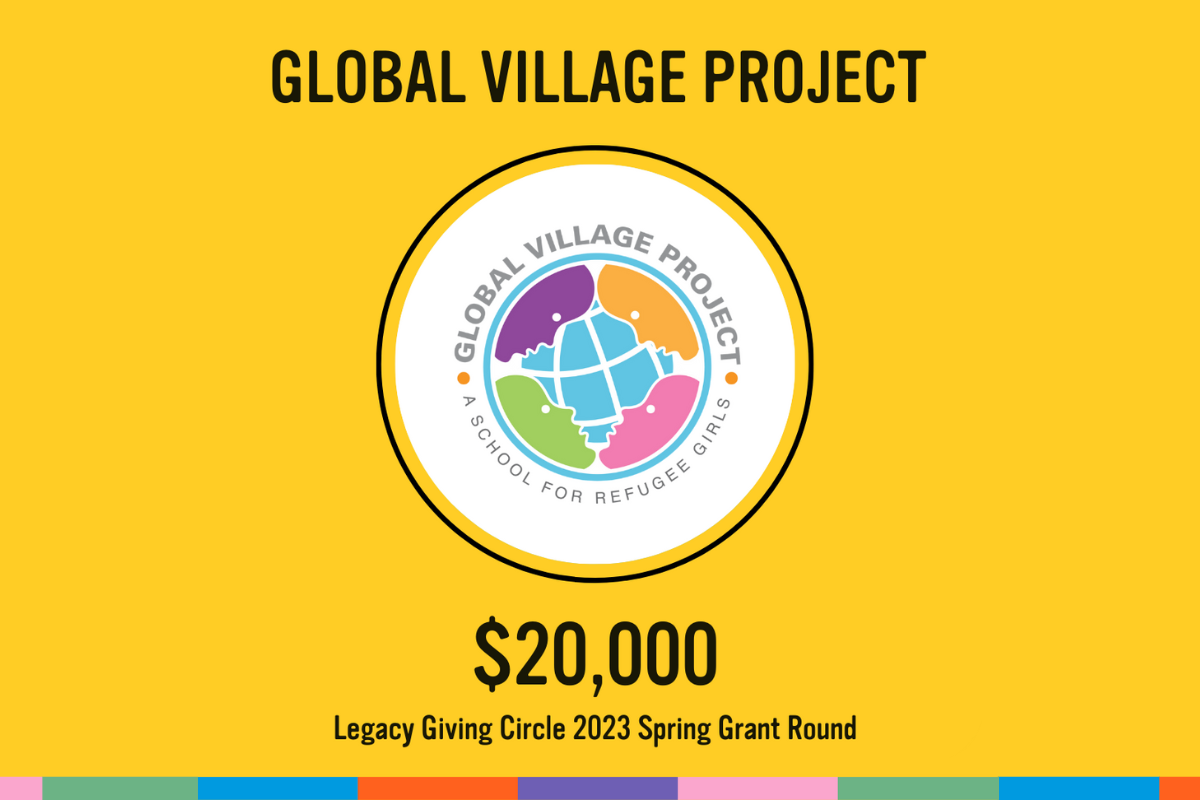
We are excited to announce our 3rd 2023 Spring Grant Recipient!
Thanks to our generous Legacy Giving Circle donor community, Global Village Project is receiving a $20,000 grant towards integrating restorative justice and literacy for refugee girls.
Initiative Location: Decatur, Georgia
Initiative Cause Areas: Education; Immigrant and Refugee Programs; Women Empowerment Programs
UN Sustainable Development Goals: 04 Quality Education; 05 Gender Equality
Initiative Description: GVP students are part of a growing group of English Language Learners entering middle and secondary schools with interrupted or limited formal education. These students are often unrecognized, under studied and underserved. Language knowledge and language learning are foundational and fundamental. Intensive English Language & Literacy (IELL) instruction has been a longstanding pillar of the GVP program, and through this grant, we hope to integrate and formalize an additional component to this program: restorative justice. As a framework, restorative justice deviates from punitive discipline models and instead conceives of justice as a process to meaningfully “repair” the harm caused by conflict. Specifically, we will deepen students’ engagement with these concepts and practices within the four domains of literacy: listening, speaking, writing, and reading.
Restorative justice practices, such as circles, have been long standing but somewhat informal at GVP. They have historically been integrated within our commitment to the social & emotional wellness of our students, and so have been included within GVP’s counseling curriculum. Now, incorporating these practices into IELL will give stronger standing to the values and customs that they bring to the learning environment. Furthermore, GVP staff and teachers have historically been the leaders of restorative justice efforts. In making these practices part of the IELL program pillar, we hope to empower students with the knowledge and tools they need to take on a peer based leadership structure. These very skills embody the aims of restorative justice writ large: to empower community leaders who can discuss problems as they arise, address harm, determine outcomes, and act on the solution determined by the group.
At GVP we know that language is a primary means through which we make sense of the world and learn: it is how they are able to grasp concepts taught in other disciplines, how they interact with the people and the world around them, and how they convey their social and emotional needs. This makes the IELL curriculum an ideal “home” for restorative justice. Integration will take place within the following components of the IELL curriculum: ELA classes, guided reading, literacy workshops, and the texts available in the GVP library. Restorative justice will also become a greater pedagogical focus of GVP teachers, so that norms are modeled not just in content but also in approach.
Initiative Impact: Our approach to literacy instruction, as with all subjects, is strengths-based rather than deficit based; we seek to build on what our students already know. Thus, we take an additive approach to English Language Learner (ELL) education. In contrast to the typical approach in which students lose their first language and identity and are immersed in English-only environments, GVP views students’ home languages and cultures as valuable resources, and English as another tool to add to the knowledge and resources they already have. The literacy curriculum centers building connections at the intersection of students’ cultures, life experiences, and linguistic expression.
Assessments currently in use include the Fountas & Pinnell Benchmark Assessment, which is administered three times per year, and the WIDA Consortium ACCESS for ELLs test. This test measures academic English skills in
speaking, listening, reading, and writing, and is administered each February. Quantitatively speaking, in a typical year, the average GVP student gains nearly two grade levels in reading, with some making gains up to 3.5 grade levels. In addition, with each day, week, and month that passes, we see the incalculable growth in our students’ confidence in and mastery of their language skills.
Given that this project will layer restorative justice practices within the literacy curriculum, we will also seek new tools and methods of assessment that can gauge our progress in integrating these two disciplines. An ongoing partner in this work will be the Georgia Conflict Center, a peace-building focused nonprofit that advances restorative justice practices within communities, schools, and institutions. They will provide robust training for key staff throughout this process. We will seek their guidance in developing further assessment practices that are centered on this evolving dimension of our Literacy work.
Initiative Sustainability: Intensive English Language & Literacy, as described above, is one of GVP’s four program pillars and has been in operation since the early days of our school. Once implemented, we intend for the restorative justice elements described above to become core practices of the program. From a funding perspective, each of the four program pillars are allocated each year with a portion of our operating budget, as needed, to sustain the program. With program development funds, we are able to implement key expansions and improvements that require funding and other resources outside of the typical allocation. Revenue diversification is central to GVP’s funding sustainability strategy. Foundations and institutions provide multi-year grant funding to sustain key programs. Events and revenue from individual donors supplement operations. Limited funding from federal, state and local government supports key programs for serving our students and their families, who are among the most vulnerable during these times of economic hardship. Our mission and efforts to continue to support them is resonating with new and existing funders.
